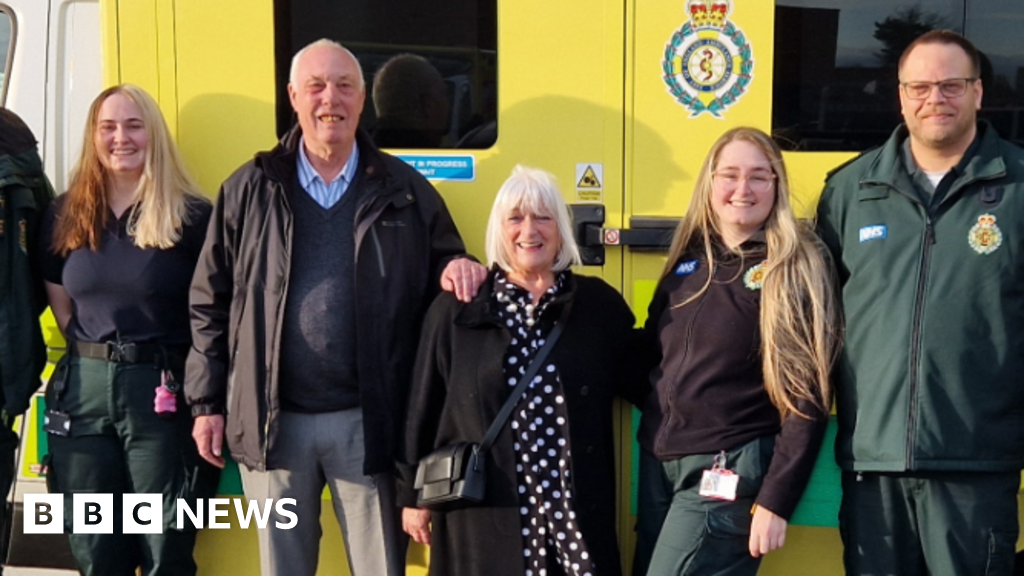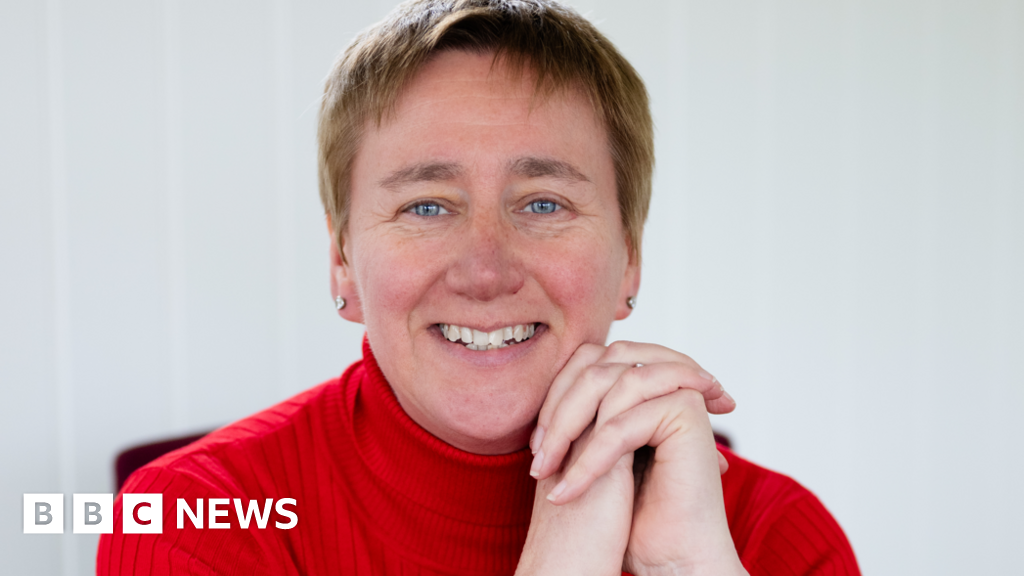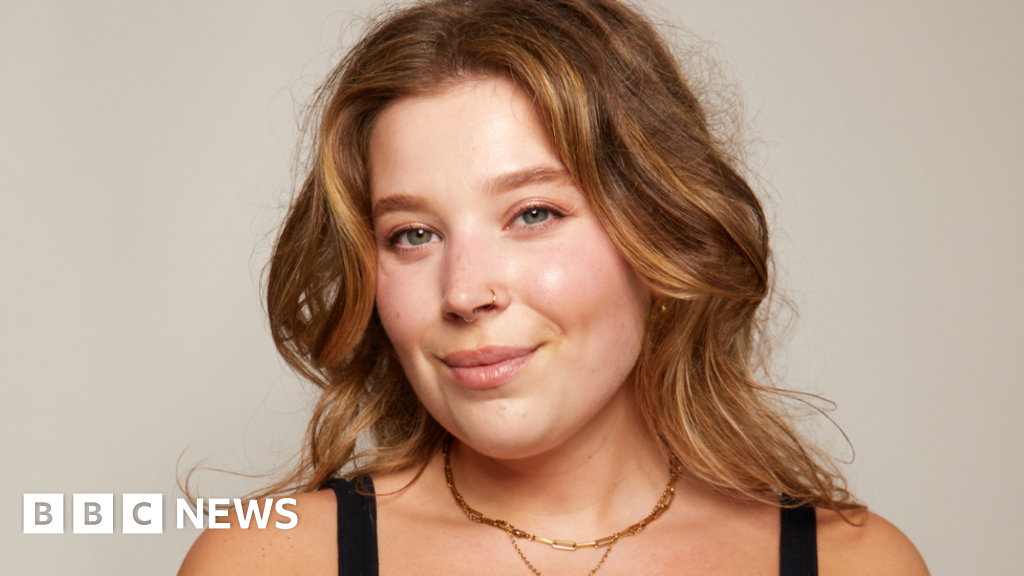 Image source, University of Nottingham
Image source, University of Nottingham
The product, called Cheese from Peas, melts in the same way as dairy cheese
By Caroline Lowbridge and Rachel Royce
BBC News
As a vegan himself, Cesar Torres struggled to find dairy-free cheese that not only tasted good but was also good for his health.
Now he and university researchers have created what they believe is "ground-breaking" vegan cheese - using yellow split peas.
Mass-produced vegan cheese is typically made from coconut oil, making it high in saturated fat and low in protein.
However, the researchers say their product is different.
Yellow split peas are naturally high in protein, so "Cheese from Peas" is higher in protein than conventional vegan cheese.
"I think when veganism became very popular, many companies rushed trying to create any product at any cost using whatever ingredients they could find, and they didn't pay too much attention to the nutritional aspect," says Mr Torres.
"But as we move forward, and consumers become more aware about not only sustainability but about the nutritional deficiencies of some plant-based or vegan cheeses, that's when we realised we had to do something better, and pulses tick all of those boxes."
Image source, Getty Images
Image caption,The powdered cheese mix is made from about 90% yellow split peas
The product - suitably called Cheese from Peas - has been developed by researchers from the University of Nottingham and spin-out company The Good Pulse Company, which was founded by Mr Torres.
Pea protein is increasingly being used in vegan products as an alterative to soya, including in pea "milk" and dairy-free cheese.
However, the researchers believe they are the first people to make dairy-free cheese using the entirety of the peas, which are ground into a flour.
The flour is used to make a powdered "cheese mix", which is about 90% yellow split peas.
The cheese mix is combined with water and mixed at a warm temperature for about 20 to 30 minutes.
The cheese is then cooked for a certain amount of time, which varies depending on the recipe. It is then moulded and allowed to ripen overnight.
Cesar Torres has been working alongside researchers from the University of Nottingham
"The majority - over 90% - of what you see in the cheese mix is still whole yellow peas, and that's why we are so excited," says Dr Vincenzo di Bari, assistant professor in Food Structure and Processing at the University of Nottingham.
"Because essentially people are going to eat legumes, which are very healthy and nutritious and rich in fibre and protein, in the form of cheese, which is very exciting."
He says the products will not just be aimed at vegans.
"Imagine if you have kids and you want them to eat healthily. They think they are eating cheese but in fact they are eating legumes," he says.
The powdered "cheese mix" is combined with water
A typical block of cheddar cheese contains about 25g of protein per 100g - making it 25% protein.
In comparison, mass-produced vegan cheese contains a much smaller amount of protein - sometimes as little as 0.2g per 100g, or 0.2%.
Cheese from Peas currently contains about 4-5% protein, but the researchers are working on adjustments so it will have between 9-10% protein.
Some homemade and artisanal vegan cheeses are made from nuts and can contain about 10% protein, but Mr Torres points out these are unsuitable for people with nut allergies, as well as being "quite expensive" and "not scalable".
Dr di Bari was reluctant to give too many details on how exactly they had managed to make a product made from peas taste like cheese, as the researchers have submitted a patent which is under review.
However, he said their process removed a lot of the "earthy" flavours typical of yellow split peas.
Manufacturers will then be able to add different flavourings to give it more of a cheese-like flavour, such as nutritional yeast, an ingredient already common in vegan cookery.
'Very similar'
Dr di Bari is not vegan himself, but says he cannot eat dairy cheese because it makes him feel sick.
"It's upsetting because I'm Italian and I love my cheese," he said.
Describing the taste of a Cheese from Peas prototype, he insists it really does taste like cheese.
"It's very similar to cheddar, because the flavouring we selected and the processing we do mask the yellow peas," he said.
The researchers argue their cheese also has environmental benefits, because peas and pulses have a far lower carbon footprint compared to milk and cheese.
Leguminous plants are also beneficial for soil due to nodules on their roots containing nitrogen-fixing bacteria, and The Good Pulse Company plans to use legumes exclusively grown in the UK.
Image source, Getty Images
Image caption,The researchers are looking for a partnership with a UK-based dairy or vegan cheese manufacturer
The researchers have recently been given more than £300,000 in funding from Innovate UK, and they are using this to develop their technologies further.
Dr di Bari stresses that The Good Pulse Company is not a cheese manufacturer. Instead, it plans to sell powdered cheese mix to cheese manufacturers, and vegan cheese manufacturers, so they can make different types of cheeses with it.
"We are currently looking for a partnership with a UK-based dairy or a manufacturer looking to make vegan cheese," he says.
"We are already talking to one of the largest cheese manufacturers in Europe, who are interested in our technology and they want to buy these ingredients from us."
 (1).png)
 1 year ago
17
1 year ago
17













